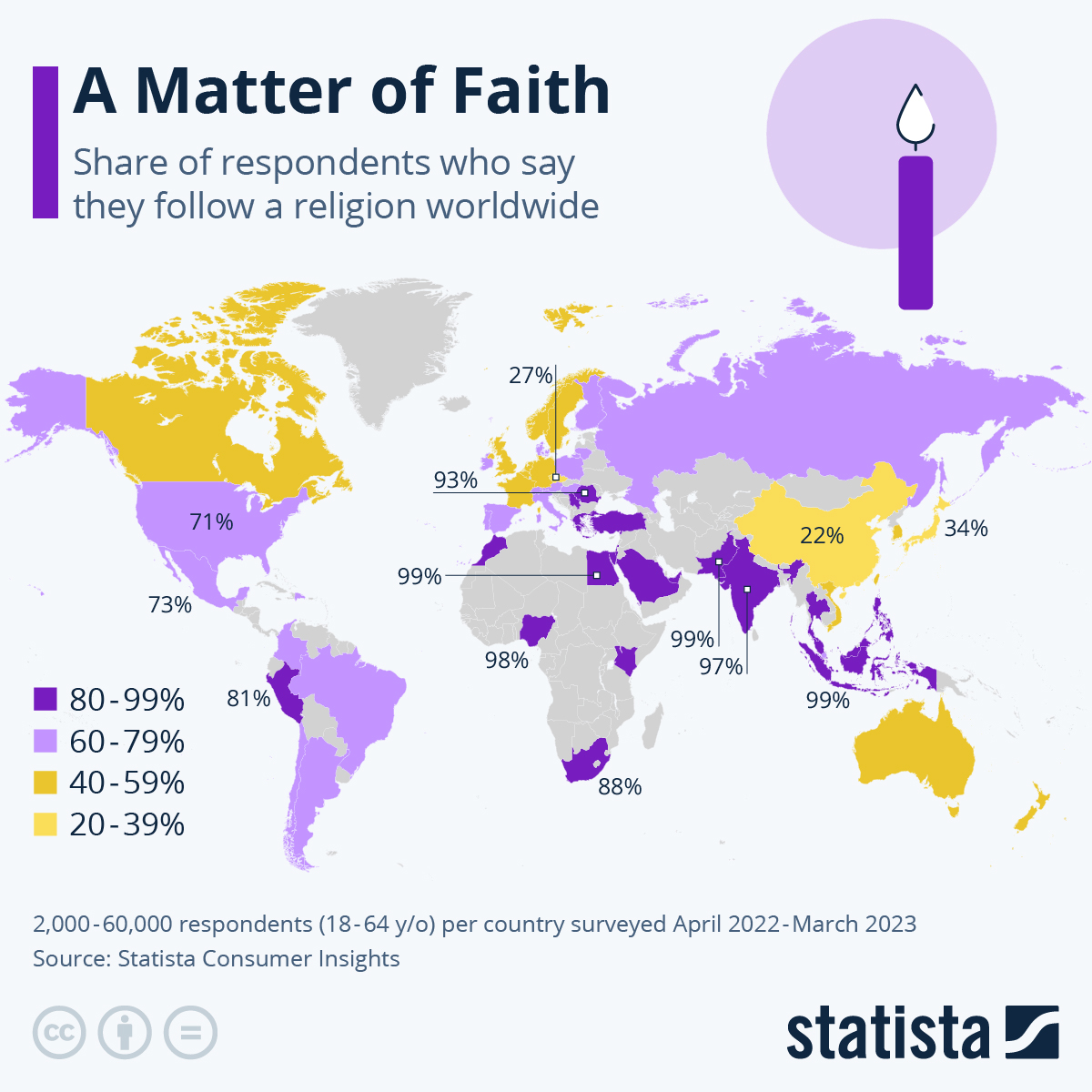 World religions refer to major organized religions that have a significant global influence, with followers all over the world, and a basic understanding of their beliefs among people of other cultures. Generally speaking, Buddhism, Christianity, Hinduism, Islam, and Judaism are considered the five major world religions, although Sikhism, Shintoism, or Taoism may also be studied in this field (all three of which have larger follower bases than Judaism).
World religions refer to major organized religions that have a significant global influence, with followers all over the world, and a basic understanding of their beliefs among people of other cultures. Generally speaking, Buddhism, Christianity, Hinduism, Islam, and Judaism are considered the five major world religions, although Sikhism, Shintoism, or Taoism may also be studied in this field (all three of which have larger follower bases than Judaism).
Religions are generally defined as systems of belief, morality, and behavior, which can be centered on the spiritual, supernatural, and superhuman. Most commonly, religion is associated with a belief in one God (monotheism) or several gods (polytheism), supernatural beings who are often believed to be all-powerful and all-knowing - although this is not always the case, with Buddhism being the most prominent example of a world religion which has no deity or god (nontheism).¹